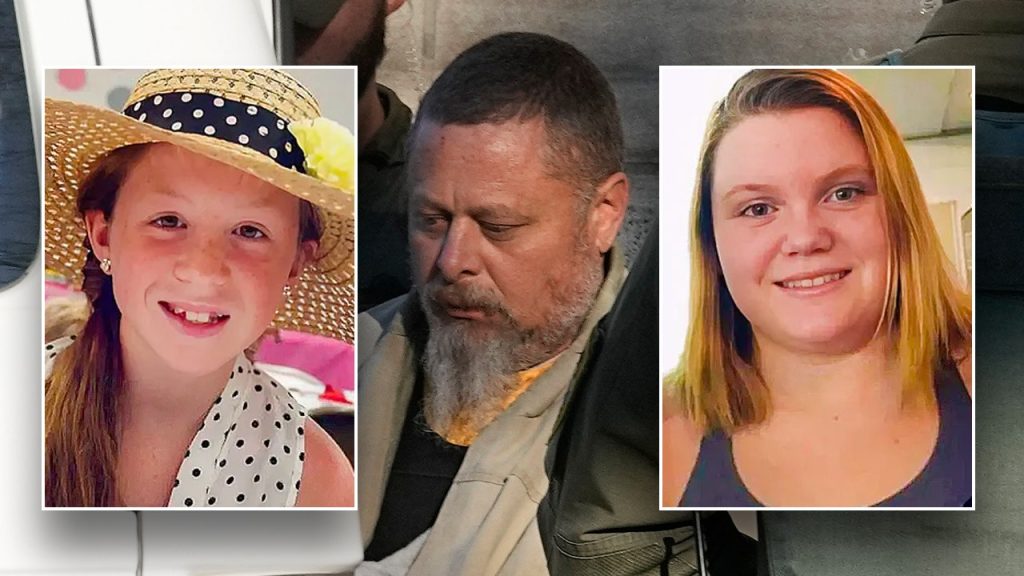Richard Allen, convicted of the 2017 Delphi murders of Liberty German and Abigail Williams, is seeking to overturn his conviction. His legal team has filed a motion arguing four key points that they claim could prove his innocence. The motion requests the court to either vacate the convictions or hold a hearing to examine the presented evidence. This appeal is a standard legal maneuver for convicted individuals, and Allen’s attorneys will likely focus on procedural aspects and potential rights violations during the trial. The prosecution’s case was considered strong, built upon evidence and Allen’s confessions, leading to a 130-year sentence. However, the defense’s motion raises questions about the timeline and other crucial details, suggesting alternative scenarios and potentially another suspect.
The first point of contention revolves around the testimony of a white van driver who claimed to have passed the crime scene around 2:30 p.m., just minutes before German’s phone deactivated. This testimony was crucial for the prosecution, positioning it as a detail only the killer would know. However, Allen’s defense presents surveillance footage allegedly showing the van at a different location at 2:44 p.m., contradicting the driver’s timeline and challenging the prosecution’s narrative. This discrepancy casts doubt on the accuracy of the timeline presented during the trial and raises questions about the reliability of the witness testimony. The defense also points to FBI evidence placing the van driver’s phone at his parents’ home at 2:50 p.m., further complicating the prosecution’s timeline.
Secondly, the defense highlights a reported confession from a deceased individual named Ron Logan. An inmate claimed Logan confessed to the murders before May 15, 2017, describing a scenario similar to the actual crime, including luring the girls to a secluded area and using a boxcutter. This alleged confession, presented as newly discovered evidence, directly implicates another person and could potentially exculpate Allen. The fact that the FBI searched Logan’s home shortly after the reported confession adds further weight to this line of argument. The defense argues that this confession, had it been known during the trial, would have likely resulted in a different outcome.
The third argument concerns Allen’s transfer from Carroll County Jail to an Indiana Department of Corrections facility. The defense claims this transfer occurred without a proper safekeeping proceeding, violating Allen’s rights. They argue that Allen was denied the opportunity to refuse the transfer and raise objections, ultimately resulting in 23 months of solitary confinement before his trial. This claim suggests procedural missteps that could be grounds for appeal. The defense contends that the lack of proper procedure denied Allen the opportunity to exercise his rights and prepare adequately for his defense.
Finally, the defense challenges the prosecution’s timeline based on evidence related to German’s phone. Expert testimony presented by the defense suggests that headphones were plugged into German’s phone at 5:45 p.m. on February 13th, hours after the prosecution’s estimated time of death. This discrepancy raises the possibility that someone else interacted with the phone after the alleged time of the murders, potentially undermining the prosecution’s narrative. While the prosecution attributed this evidence to environmental factors, the defense argues they were denied the opportunity to fully challenge this interpretation in court.
The prosecution’s case heavily relied on Allen’s multiple confessions in prison, an unspent bullet found at the crime scene matching a gun found in Allen’s home, and witness testimony placing him near the scene. The defense, however, focused on Allen’s mental state after his arrest, suggesting his confessions might not be reliable. The trial also included the pivotal 43-second video captured by German, showing the girls walking with a man known as “Bridge Guy.” The audio from this video, where the man says “Guys, down the hill,” became a key piece of evidence. Observers noted the similarity between the voice in the video and Allen’s voice during his recorded confessions.
The defense’s motion represents a significant challenge to the prosecution’s case. While the prosecution presented seemingly compelling evidence, the defense’s arguments regarding the timeline, alternative suspect, and procedural irregularities raise crucial questions that could impact the conviction. The court will now need to consider these arguments and decide whether to grant a hearing or potentially vacate the conviction. The outcome of this motion will have profound implications for the case and the families involved in this tragic event. The defense’s strategy is to cast enough doubt on the prosecution’s case to secure a new trial or even an acquittal. The court’s decision will determine whether these arguments are sufficient to warrant further proceedings.


